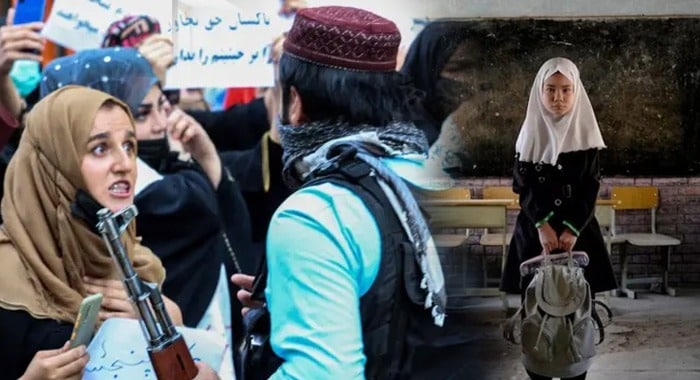Three years after the Taliban’s return to power, young Afghan girls continue to raise their voices against the regime’s systematic erasure of their right to education, a loss they say has left them hopeless, psychologically distressed, and strangers in the country they once called home.
Dozens of girls, many of whom completed school with distinction and dreamed of university, say they have now been effectively erased from public and academic life. “The Taliban have not just denied us education, they have taken away our right to breathe freely, to dream, to exist without fear,” said 21-year-old Siddiqa, who was barred from even attempting the university entrance exam (Kankor).
“The Kankor results were announced recently,” she said bitterly. “I didn’t feel excitement. I felt despair. The girls I graduated with are in their second or third year at university now. I was never even allowed to try.”
Her frustration is echoed by Zarina, a girl forcibly repatriated from Iran. She had hoped to resume her studies in Afghanistan this year but found the same walls of restriction waiting for her.
“I was determined to appear in the Kankor exam and begin my university journey this year,” Zarina said. “But the Taliban stole that chance from me too. I wanted to see my name among the successful candidates, just like anyone else. Now I feel like a refugee in my own country.”
For Bahar, who grew up with her twin sister, the contrast is even more painful. Her sister is currently studying dentistry, a dream the two once shared, but Bahar herself has been confined to her home, paralysed by fear.
“I always scored higher than my sister in school and in our Kankor preparations,” she said. “Now, I can’t even leave the house. The Taliban didn’t just take away our education — they’ve taken away our right to breathe, to feel safe.”
She continued, her voice shaking:
“One day they lash a woman on the street, the next they abduct a girl from her home. We observe full hijab, yet we’re still unsafe. Whenever I hear the door creak, I wonder, is it my turn now?”
A Systematic Erasure of Female Education
When the Taliban seized power in August 2021, they immediately banned girls above grade 6 from attending school. On December 20, 2022, a formal decree closed the doors of all universities to women. For a short time, girls were still allowed to pursue education in semi-professional institutes like nursing and midwifery, but even those were shut down on December 20, 2024, completing a total ban on female education in Afghanistan.
This clampdown came despite international condemnation and warnings from humanitarian agencies.
Lost Futures, Growing Crisis
The impact of the Taliban’s gender apartheid extends far beyond individual stories. The UNICEF has warned of an impending crisis in the Afghan healthcare system, where the lack of trained female professionals is already being felt. Women are increasingly unable to access medical care due to cultural restrictions, and the talent pipeline that once filled hospitals, clinics, and maternity wards is rapidly drying up.
In a symbolic moment, the Taliban’s Ministry of Education announced the results of the 2025 Kankor exam on July 21, naming Seyed Dawood Sadat as the national topper with 356.574 points. But conspicuously absent from this success story were the country’s girls — the very students who once topped the same exams before being banned outright.
A Generation Silenced, A Nation in Decline
The voices of girls like Siddiqa, Zarina, and Bahar are not just emotional testimonies, they are indictments of a regime that has crippled its own future by sidelining half its population. The psychological trauma, social alienation, and long-term economic cost of these policies are only beginning to surface.
As the international community debates sanctions, engagement, and aid, Afghan girls remain caught in a silent war — a war waged not with weapons, but with decrees and denials.
“If this continues,” one of the girls warned, “it won’t just be our futures that collapse. The entire society will sink into darkness.”





